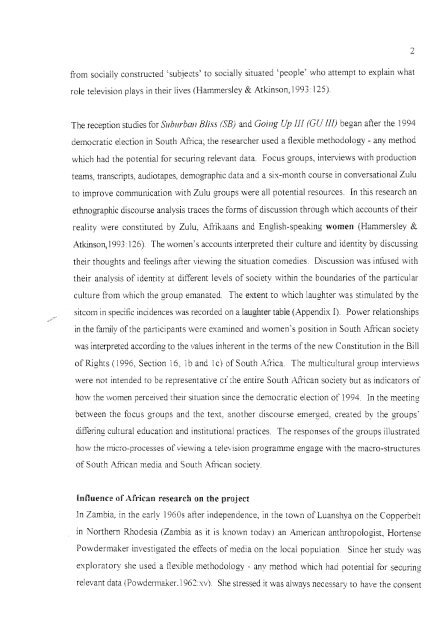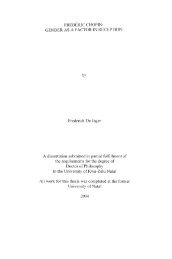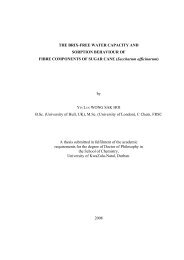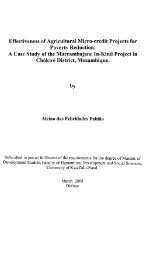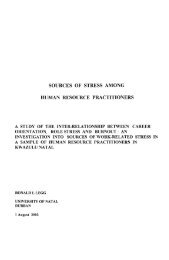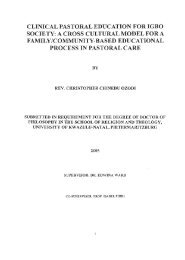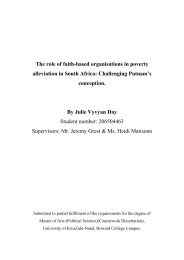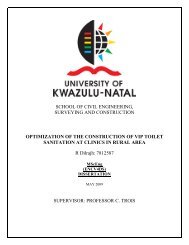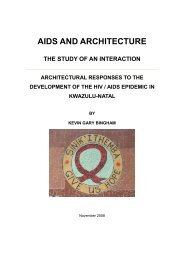View/Open - ResearchSpace
View/Open - ResearchSpace
View/Open - ResearchSpace
Create successful ePaper yourself
Turn your PDF publications into a flip-book with our unique Google optimized e-Paper software.
from socially constructed 'subjects' to socially situated 'people' who attempt to explain what<br />
role television plays in their lives (Hammersley & Atkinson,1993: 125).<br />
The reception studies for Suburban Bliss (SB) and Going Up III (GU III) began after the 1994<br />
democratic election in South Africa; the researcher used a flexible methodology - any method<br />
which had the potential for securing relevant data. Focus groups, interviews with production<br />
teams, transcripts, audiotapes, demographic data and a six-month course in conversational Zulu<br />
to improve communication with Zulu groups were all potential resources. In this research an<br />
ethnographic discourse analysis traces the forms of discussion through which accounts of their<br />
reality were constituted by Zulu, Afrikaans and English-speaking women (Hammersley &<br />
Atkinson, 1993: 126). The women's accounts interpreted their culture and identity by discussing<br />
their thoughts and feelings after viewing the situation comedies. Discussion was infused with<br />
their analysis of identity at different levels of society within the boundaries of the particular<br />
culture from which the group emanated. The extent to which laughter was stimulated by the<br />
sitcom in specific incidences was recorded on a laughter table (Appendix I) . Power relationships<br />
in the family of the participants were examined and women's position in South African society<br />
was interpreted according to the values inherent in the terms of the new Constitution in the Bill<br />
of Rights (1996, Section 16, 1 band 1 c) of South Africa. The multicultural group interviews<br />
were not intended to be representative of the entire South African society but as indicators of<br />
how the women perceived their situation since the democratic election of 1994. In the meeting<br />
between the focus groups and the text, another discourse emerged, created by the groups'<br />
differing cultural education and institutional practices. The responses of the groups illustrated<br />
how the micro-processes of viewing a television programme engage with the macro-structures<br />
of South African media and South African society.<br />
Influence of African research on the project<br />
In Zambia, in the early 1960s after independence, in the town ofLuanshya on the Copperbelt<br />
in Northern Rhodesia (Zambia as it is known today) an American anthropologist, Hortense<br />
Powdermaker investigated the effects of media on the local population. Since her study was<br />
exploratory she used a f1exible methodology - any method which had potential for securing<br />
relevant data (Powdermaker. 1962:xv). She stressed it was always necessary to have the consent<br />
2


